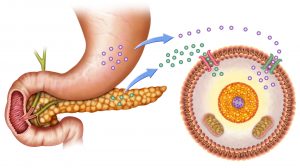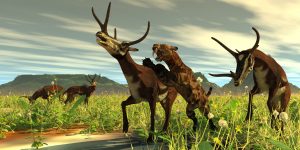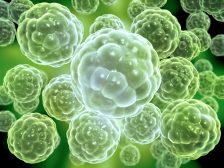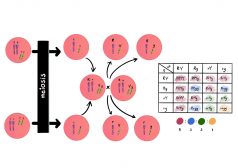Definition
noun
(biochemistry) An equilibrium constant for dissociation
(biochemistry) An abbreviation for kilodalton, also kDa
(pathology) An abbreviation for: Kawasaki disease (an inflammatory disease) and Kienböck’s disease (an avascular disease characterized by necrosis in the lunate bone of the wrist)
Supplement
In biochemistry, KD refers to the dissociation constant. It is a type of equilibrium constant that measures the propensity of the dissociation of a complex molecule into its subcomponents. It describes how tightly a ligand binds to a particular protein, or at which point the salt dissociates into its component ions. The mathematical definition of dissociation constant is as follows:
KD = <a href=”AxBy“>/ AxBy, where and B are the concentratons of A and B subunits and AxBy is the concentration of the complex AxBy.
kD may also refer to the symbol used for unit, kilodalton (also, kDa). One kilodalton is equivalent to 1,000 daltons. Dalton is a measure of the weight of a hydrogen atom.
KD is also the abbreviation for certain diseases. Kawasaki disease, for instance, is abbreviated as KD. It is an inflammatory disease causing vasculitis and sometimes aneurysm in individuals suffering from it. It is characterized by inflamed blood vessels throughout the body.
Kienböck’s disease, also abbreviated as KD, is a disorder of the wrist. It is characterized by an avascular necrosis in the lunate bone of the wrist.
Dictionary > Kd
You will also like...

Population Regulation in an Ecosystem
With regard to the population size of a species and what factors may affect them, two factors have been defined. They ar..

Sugar Homeostasis
The blood sugar level is regulated by two hormones. The mechanism behind this type of negative feedback control is descr..

Early Mammals on Earth
The Earth's ecosphere was rapidly changing and throwing up a wide range of ecological niches that new adaptive organisms..

The Evolution of Cell Organelles
The nucleus containing the genetic material, DNA, and the mitochondria, well-identified as the "powerhouse of the cell",..

Independent Assortment and Crossing Over
This tutorial describes the independent assortment of chromosomes and crossing over as important events in meiosis. Read..

Control of Body Movement
Some of the body movements can be controlled at will, others cannot. The body has a motor program, which is the pattern ..

